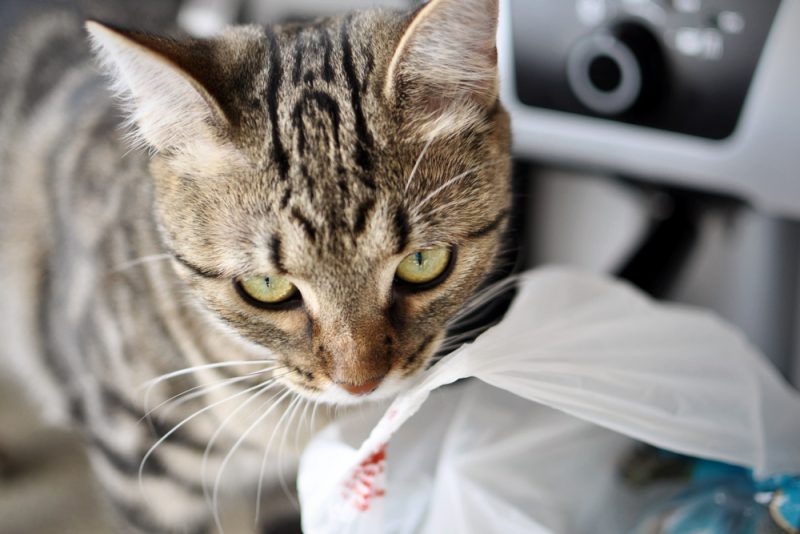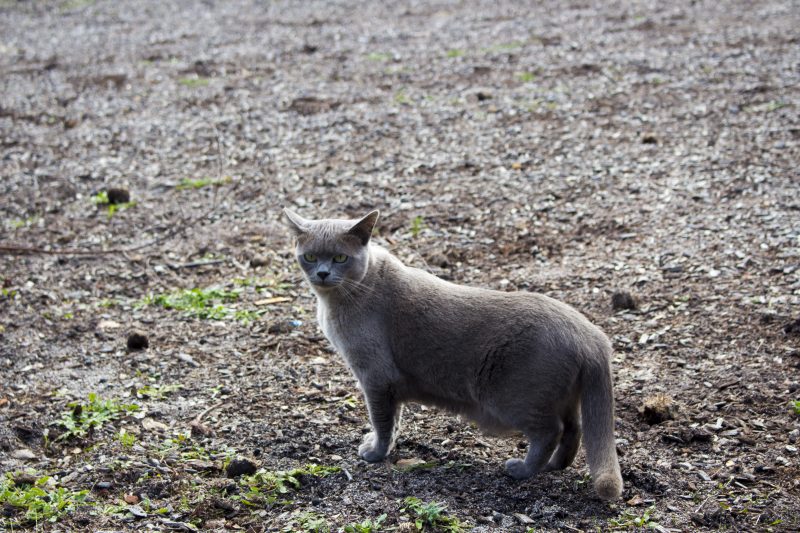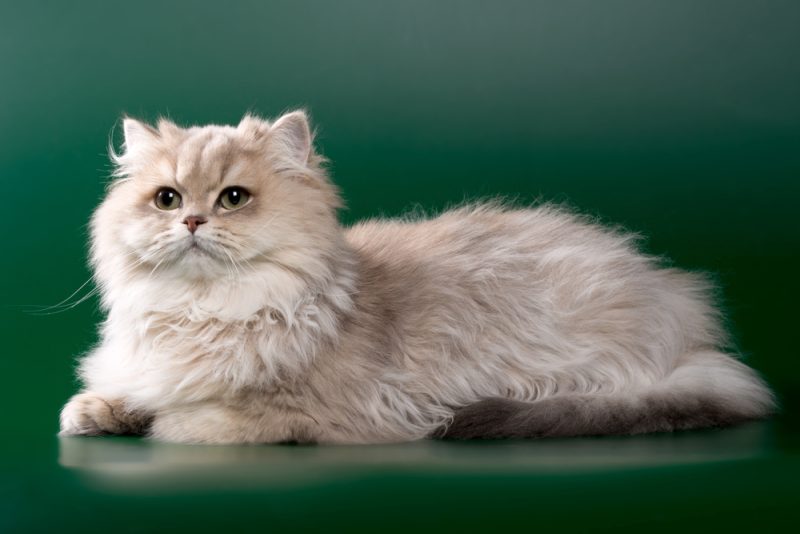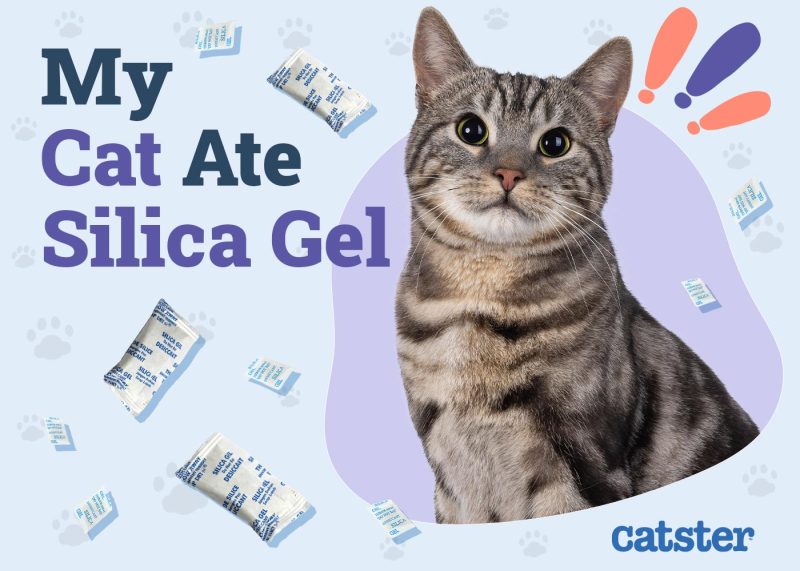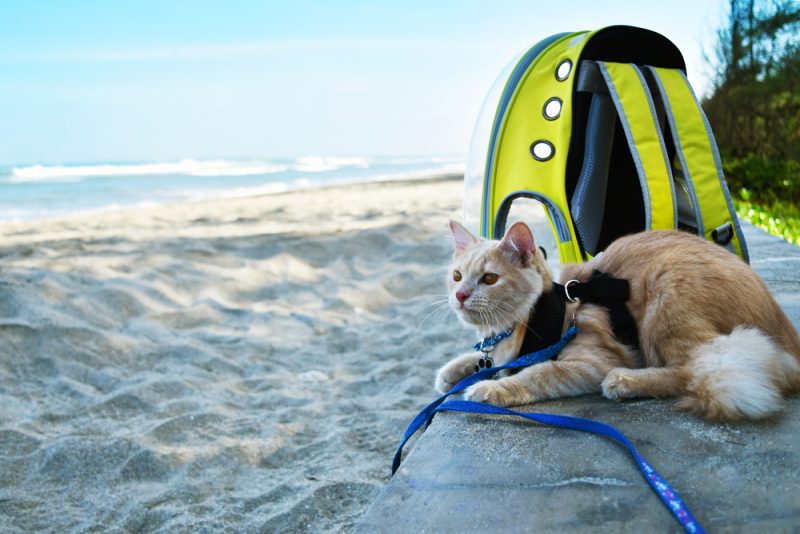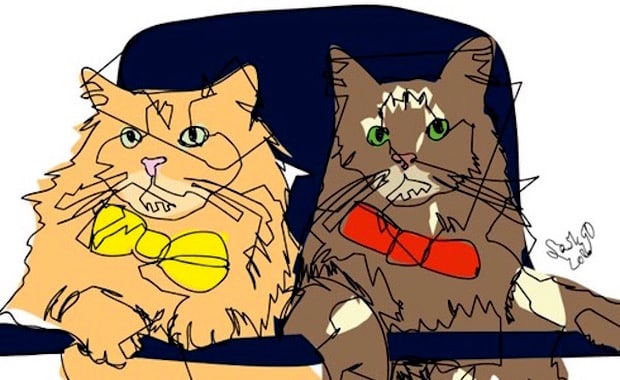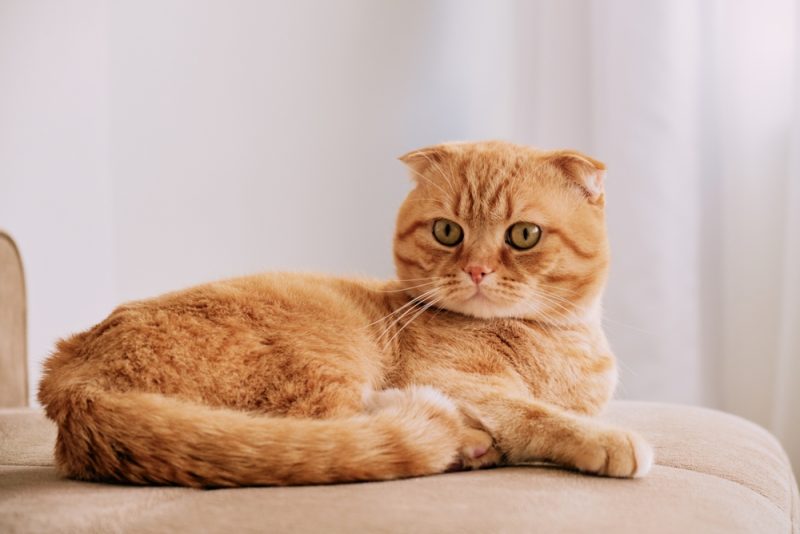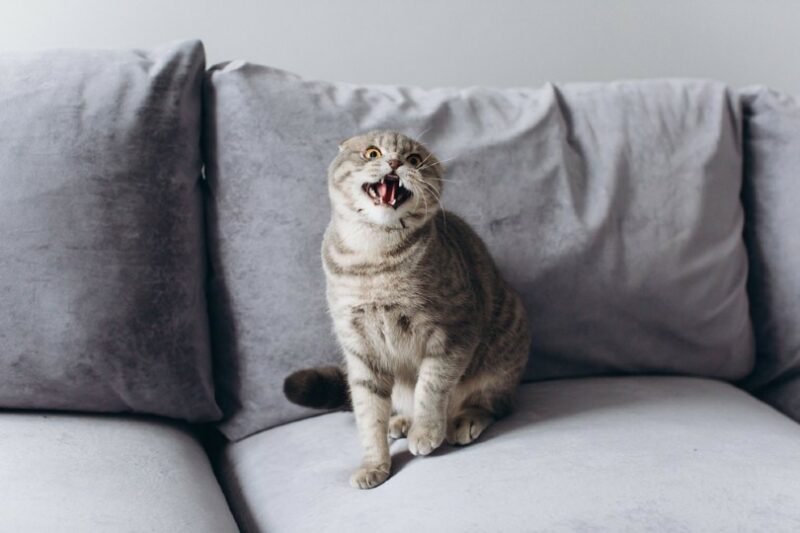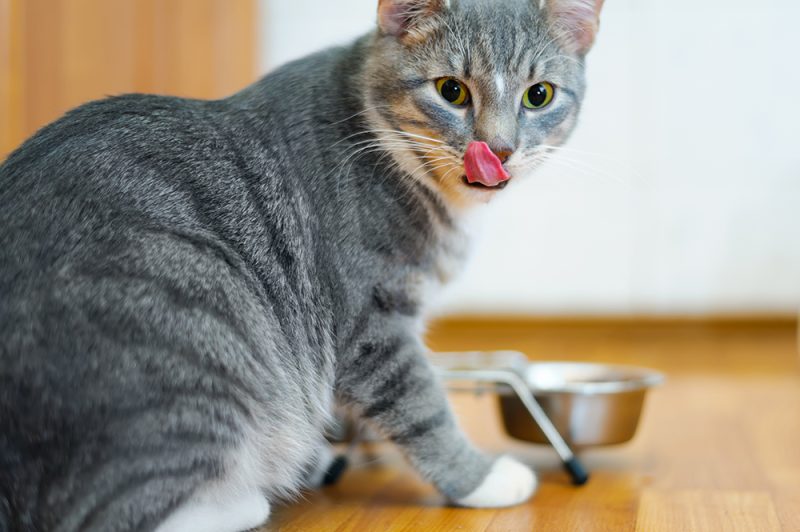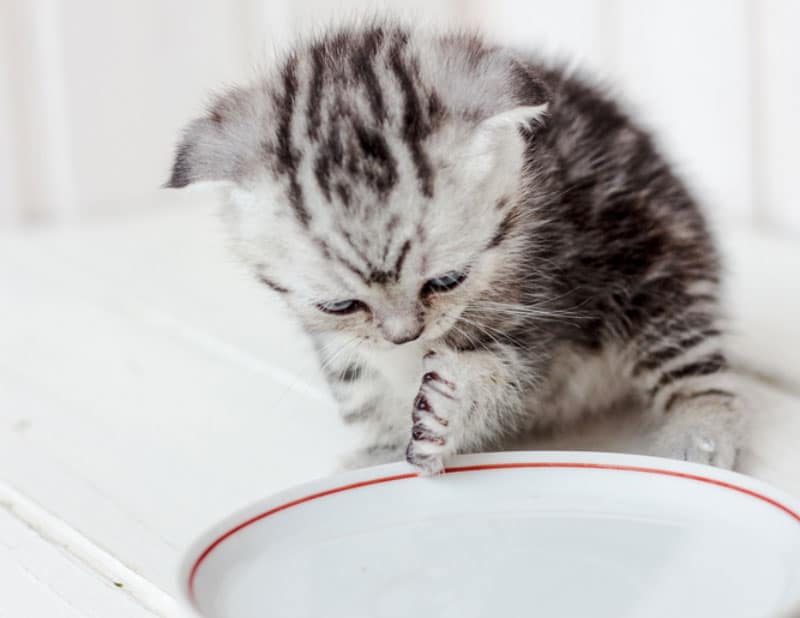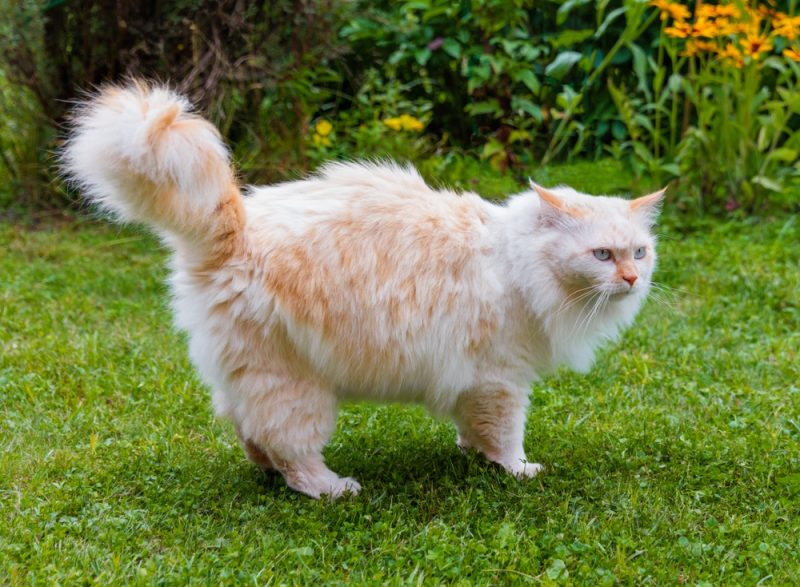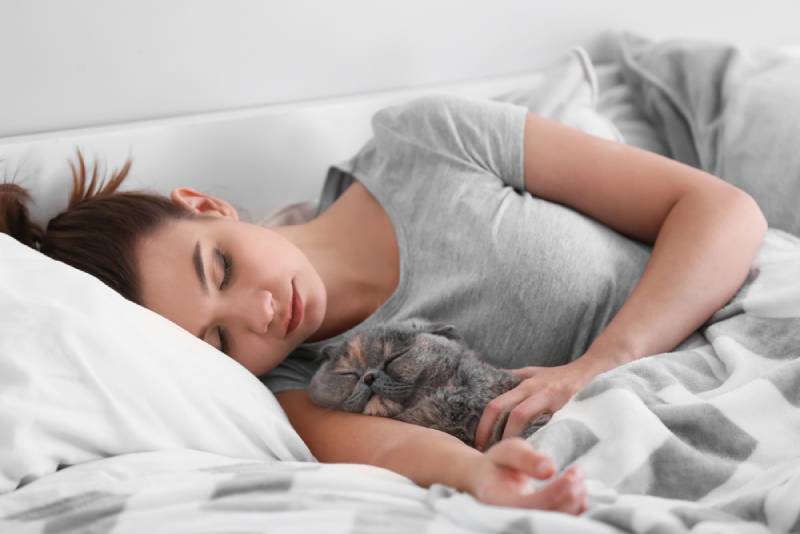In this article
View 2 More +Cat parents know that felines can do some very odd things at times. Whether suddenly running up the walls (literally) or fitting themselves into the smallest space they can find, cats engage in behaviors that seem to have no reasonable explanation. One such behavior? Licking plastic!
Why exactly does your cat lick plastic? Why do cats lick plastic bags? There must be a reason. There is! In fact, there are a handful of reasons your kitty is fond of doing this. Here’s a look at those reasons and ways to stop your pet from engaging in this behavior if you feel it’s problematic.

Why Do Cats Lick Plastic?
Why do cats like plastic so much? There are three main reasons for this fondness for all things plastic.
1. Pica
You may have heard of pica before, at least in humans. This compulsive disorder leads people to eat things that aren’t food, such as dirt or hair. It can be fairly common in humans, especially children.
Pica can also be found among felines, though it is much less common. Pica in cats occurs when they chew, lick, suck on, or eat non-food items consistently. A few of the more common things cats will do this with are wood, fabrics, and, of course, plastic. Pica can arise for various reasons, such as nutritional deficiencies, and though it might not seem dangerous, it can be, as eating non-food items can lead to intestinal blockages and other health issues.
If you need to speak with a vet but can't get to one, head over to PangoVet. It's an online service where you can talk to a vet online and get the advice you need for your pet — all at an affordable price!

2. Sensory Stimulation
Licking plastic can satisfy many of your kitty’s senses, making this behavior fun and rewarding. Take plastic bags; have you ever wondered why cats lick plastic bags?
For starters, plastic bags make a fabulous crinkly noise that intrigues kitty. Some think the crinkling sound seems similar to a prey animal making its way through the grass, which triggers your pet’s hunting instinct. This makes plastic bags irresistible to kitties!
It isn’t only the fun crinkling noise they make that leads cats to lick them, though. Your cat’s sense of smell is incredible—mostly due to the 200 million scent receptors in their nose! Now, think about what you might bring home in a plastic bag. You might bring groceries, takeout, or other fantastic-smelling things into the home in plastic bags, and for your cat, the smells from those items will linger on the plastic bags. And if something smells wonderful, it must also taste wonderful, right? Hence, the licking.
What about plastic bags that don’t contain anything smelly in them? Well, you can’t smell it, but plastic bags can have a delicious scent all their own. Some plastic bags contain biodegradable ingredients, like animal fat, fish oil, or cornstarch, all of which can smell like a tasty treat to your pet.
Finally, some felines simply enjoy the texture of plastic bags. Plastic bags have a smooth texture that’s cool to the touch, which likely feels fantastic on your cat’s tongue!
3. Understimulation
And the other reason your cat might like licking plastic or plastic bags is they’re bored. When felines are understimulated, they get bored, leading to all sorts of mischief, like licking and playing with plastic bags.

Is Licking Plastic Bad for My Cat?
If your cat is licking plastic but doing nothing more with it, they should be fine. You need to be concerned when they start chewing on plastic. Ingesting plastic can lead to health issues, such as intestinal blockages, and pose a choking hazard. There’s also always a chance (though a small one) that your kitty could get twisted up in a plastic bag, which could result in suffocation. If your pet has turned from merely licking plastic bags to eating them, it’s time to break them off the plastic-licking habit.
The only other reason to be worried is if the bag contained something that might be harmful to your cat, in which case, you should keep it far out of their reach. One example is plastic containers or bags that could have antifreeze spilled on them – antifreeze tastes good to cats, but is extremely poisonous.
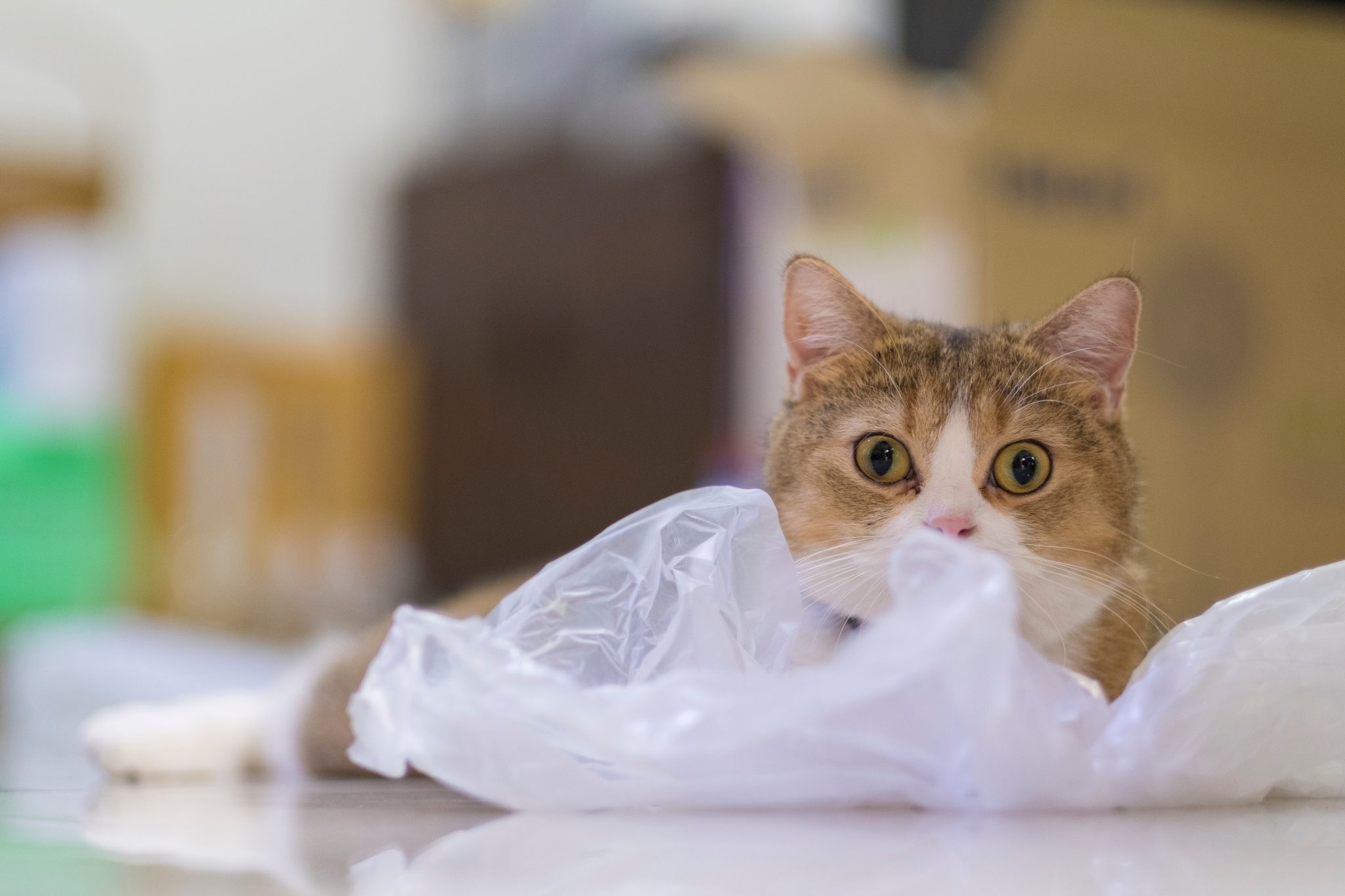
Ways to Stop Your Cat From Licking Plastic
The best way to help stop your cat licking plastic is to limit their access to it. Whenever you bring plastic bags into the home, ensure they’re put away somewhere your cat can’t get to, and when it comes to plastic wrapping, such as food wrappers, throw them away immediately rather than leaving them out on a counter. If your pet can’t get to plastic, they won’t be able to lick or chew on it!
Another way to help your cat stop licking plastic is to ensure they’re getting enough mental and physical stimulation each day. Engage your cat with toys that are safe for them to chew up and lick. Be sure you have plenty of scratching posts and cat trees in the home so your pet is entertained. Doing this can help immensely if your cat licks plastic due to boredom.
If there is plastic in the home that your cat is still licking and chewing (such as plastic pots), and they are not items you can hide away, you can try to deter kitty. There are certain scents that felines are not fans of, like rosemary, cayenne, and citrus, so you can spray something like that around plastic to try to keep them away.
Finally, if you think your cat licks plastic due to pica, you should speak with your pet’s vet. Because pica can extend to many non-food items, you may find that removing plastic simply causes your pet to start licking and chewing a different thing, such as fabric, rather than avoiding non-food stuff.

Final Thoughts
There are several reasons your cat likes to lick plastic. Kitty may be bored, simply enjoy all the sensory input they get from it, or have a condition like pica. The good news is that if your feline is just licking plastic, then there shouldn’t be an issue. However, if you see your pet chewing on plastic, it’s time to take it away! You can help break your cat’s plastic-licking habit by removing plastic items, replacing them with safe cat toys, and deterring kitties with their least favorite scents.
Featured Image Credit: luckat, Shutterstock
